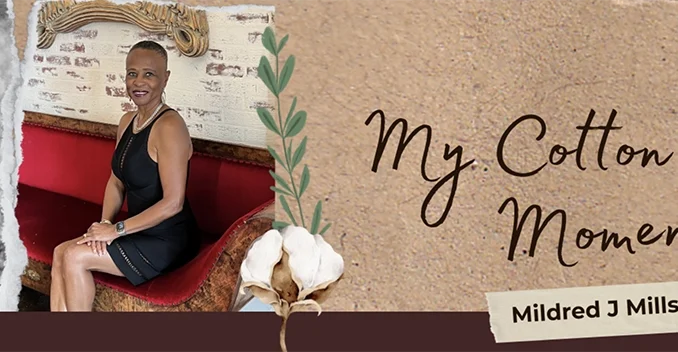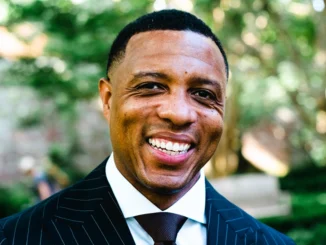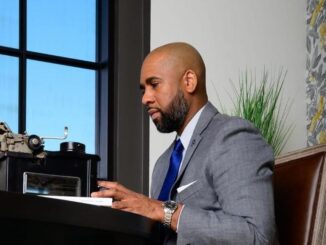
By Staff
Host and Creator of My Cotton Patch Moment Podcast
What inspired you to create My Cotton Patch Moment and turn your personal pain into a platform for public healing?
My Cotton Patch Moment was born out of a simple question during my last class before my graduate capstone reading: “Now how do you plan to market the book?” I froze for a moment—but that question planted a seed. I realized that my story in Daddy’s House wasn’t just about me; it was about the millions of silent voices still carrying family secrets and generational pain. I started the podcast to extend the conversation beyond the page—to help others name their own “cotton patch moments,” those times when life demands courage, honesty, and faith to move forward. Turning my pain into purpose allowed me to meet people where they are, not as a lecturer, but as a fellow traveler on the road to healing.
How did the title My Cotton Patch Moment come to represent the spirit and intention behind your podcast?
The title comes from my childhood in Alabama, where I often found myself standing in a cotton patch—hot, tired, and dreaming of life beyond the cotton field. That image became a metaphor for all the moments when we feel stuck, burdened, or unseen. My “cotton patch moment” was realizing that even in the harshest fields, growth happens. The podcast carries that same spirit—finding beauty in struggle and redemption in truth.
When you think about the guests you’ve featured, what stories or moments have most moved you or reflected your mission of truth-telling and transformation?
I’m moved by every guest who dares to be transparent. Whether it’s a pastor acknowledging trauma in the pulpit or a mother discussing the ache of parental incarceration, each story reminds me why I started this work. The most powerful moments are when a guest pauses mid-conversation and says, “I’ve never said that out loud before.” That’s when healing begins—the moment when truth finally has a place to breathe.
Your podcast often touches on themes of resilience, forgiveness, and renewal. How do you decide which conversations to bring to your audience, and what makes a story feel right for your platform?
I pray over every season before I record a single episode. In my praying, I ask God to reveal where He wants me to go next. I look for stories that stretch beyond survival to show growth—people who’ve turned pain into possibility. A story feels right when it aligns with three things: truth, transformation, and testimony. If it moves hearts, educates minds, and strengthens faith, it belongs on My Cotton Patch Moment.
Many of your listeners describe the podcast as healing and affirming. What do you believe makes storytelling such a powerful tool for emotional and spiritual restoration?
Storytelling is the bridge between isolation and understanding. When we tell our stories, we tell others, “You’re not alone.” That’s powerful medicine. In every story, a hidden lesson or blessing is waiting to be uncovered. The act of sharing transforms both the teller and the listener—it releases shame and replaces it with connection.
As a survivor and truth-teller yourself, how do you balance vulnerability with leadership when engaging in such personal and sometimes painful topics?
I remind myself that leadership isn’t about perfection—it’s about presence. I don’t have to have all the answers; I just have to show up authentically. I share enough of my own story to let others know healing is possible, but I always make space for my guests’ voices to lead. Vulnerability is not weakness—it’s a form of strength that invites others to be brave, too.
What impact has My Cotton Patch Moment had on you personally—emotionally, spiritually, or creatively—since launching it?
The podcast has been a mirror and a ministry. Emotionally, it’s helped me make peace with parts of my past that still whispered. Spiritually, it’s deepened my trust in God’s timing—how He uses our pain as preparation. Creatively, it has stretched me beyond writing into producing, interviewing, and listening in new ways. I’m constantly reminded that growth doesn’t end when the microphone turns off.
In an era when so many podcasts focus on entertainment or celebrity, how do you maintain the authenticity and purpose that make your show stand out?
I stay anchored in purpose, not popularity. I’m not chasing numbers—I’m chasing impact. Every episode is an act of service, not performance. When I keep my heart centered on why I started, authenticity follows naturally. I’d rather reach one heart deeply than entertain a thousand superficially.
How do faith and self-love guide the conversations you have and the stories you choose to elevate on your podcast?
Faith and self-love are the twin pillars of My Cotton Patch Moment. I learned through faith that redemption is always possible. Self-love taught me that we are all worthy of it. I choose stories that uplift both—where people rediscover their divine worth even after brokenness. Those moments become love letters to the soul.
What do you hope listeners take away from each episode, and how do you envision the future of My Cotton Patch Moment as part of your broader mission to inspire healing, forgiveness, and growth?
I hope listeners leave each episode feeling seen, strengthened, and stirred to act—to forgive, to heal, to believe again. My dream is to expand My Cotton Patch Moment into live conversations, workshops, and community healing circles where stories lead to tangible change. The podcast is just the beginning of a larger movement toward truth, transformation, and generational healing.
About
My Cotton Patch Moment is a motivational, comedic podcast that is about listening to your inner voice and knowing when to change directions. It’s about believing that no matter the circumstances we are born into, we are not stuck there. We can determine our destiny if we are willing to work for it. My name is Mildred J. Mills. I am a writer, motivational speaker, wife, mother, grandma, and the third of seventeen children.
Mildred J Mills is the third of seventeen children. She was born and raised on a sixty-acre farm in Wetumpka, Alabama, where she grew up picking cotton. She is a retired IT executive and holds a Bachelor of Arts and Master of Arts in creative writing/nonfiction. Her essay, “Daddy’s House,” won the 2022 Etruscan Prize and is published in The Etruscan Press. She authored “Amazing Grace,” an essay which was published in Journey into Art, an anthology in 2023. Daddy’s House is her first book. Mildred lives in Atlanta, Georgia, with her husband.
Listen to the Podast










